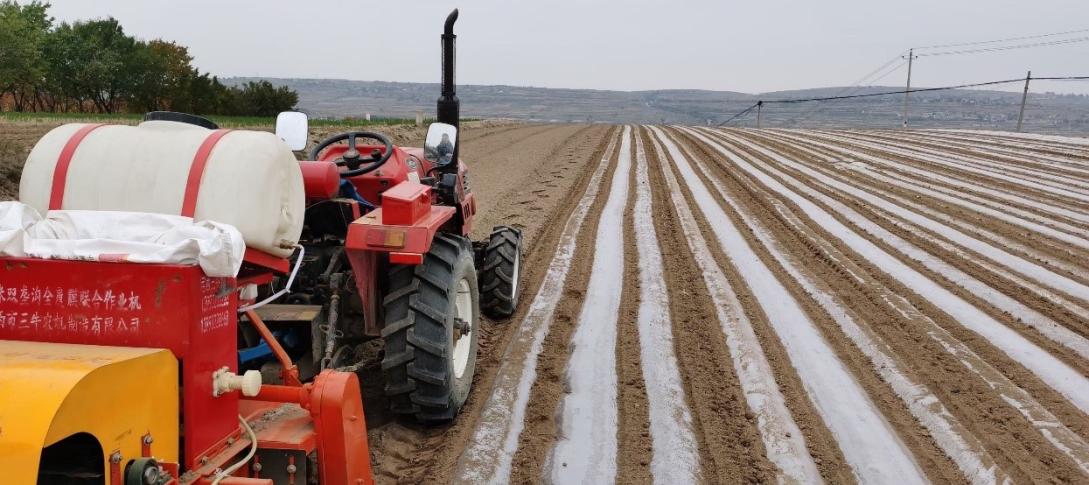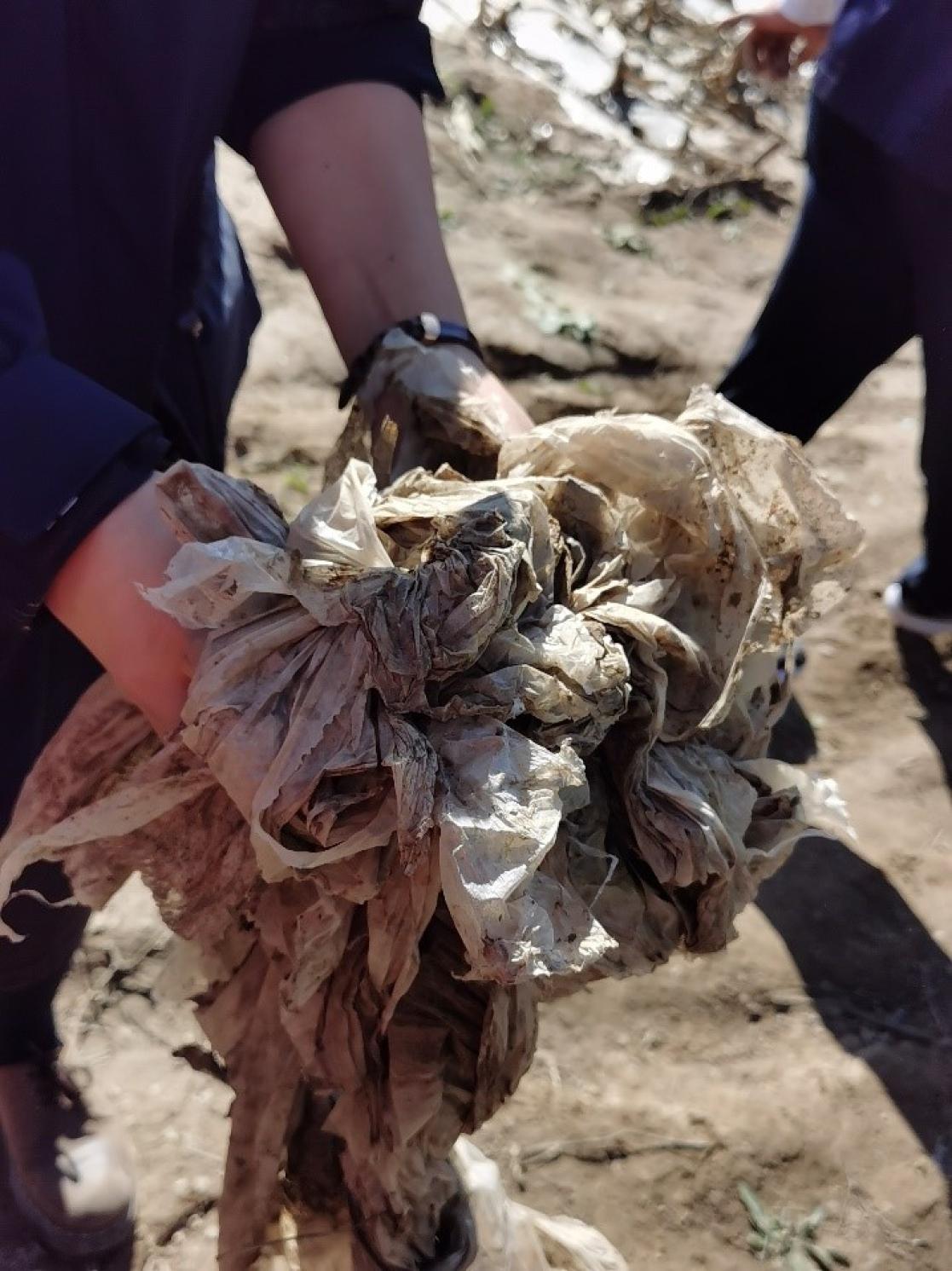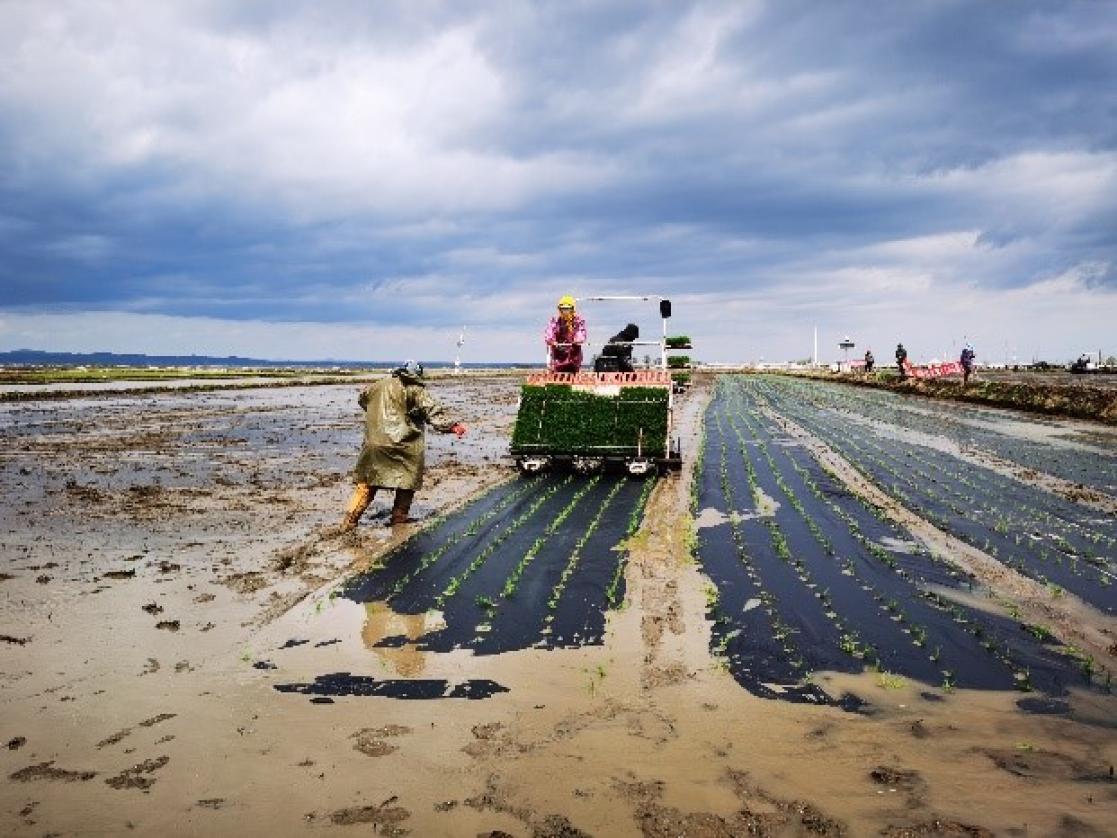By Xuefei Chen Axelsson
Stockholm, Feb. 2(CED) — Europe and China are working together to make mulching a greener agricultural technique.

Mulching is a widely used agricultural technique that involves the use of plastic films to cover the soil. This exercise has tremendous cost-effective benefits such as protecting the crops from being affected by dry weather and cold soil, as well as preventing weed growth.
Nevertheless, mulching also comes with some negative side-effects on sustainability. As mulch film is as thin as 0.01 mm or even less with a usage lifespan of 6 to 8 months, it is difficult to entirely collect them from the fields which could cause pollution to the soil. In addition, improper handling of the used mulch film such as burning them would lead to air pollution.
According to research, less than 40% of agricultural soil in China have residual used mulch film of 30 kilos >/hectare, while 30.1% have residual used mulch film of >90 kilos/hectare.
Deutsche Gesellschaft für Internationale Zusammenarbeit (GIZ) GmbH, commissioned by Federal Ministry of Economic Cooperation and Development (BMZ) through the develoPPP funding, has joined forces with European and Chinese experts including Reifenhäuser GmbH & Co. KG Maschinenfabrik, Zhuhai Kingfa Biomaterial Co., Ltd. and TÜV Rheinland (Shanghai) Co., Ltd. since 2020 in a bid to tackle the eco-challenges of using mulch films in agriculture.
At present the majority of mulch films are made of polyethylene, but it can be easily torn which makes it difficult for collection after use. The project has introduced a state-of-art mulch film made of new materials and know-how with a five-layer design based on international expertise. The strength of the new solution doubles or even trebles than that of polyethylene mulch film which significantly facilitates collection after use.
The task force also introduced a digital tracing system that could provide a holistic and intuitive monitoring of mulch film from its production, application to disposal, thus facilitating better management of its life cycle. This system has already been used in Gansu with satisfactory results boosting a mulch film collection rate of over 90%.
The project has also worked with the related authorities of Chinese central government, Gansu Province and Yuzhong County to finetune their procurement criteria of mulch film. A pre-requisite of mulch film producers to participate in such government tenders is that they have to commit themselves to the collection and recycling of used mulch films and taking their producers responsibility as a modified Extended Producers Responsibility (EPR) Scheme for mulch film in China.
The task force believes biodegradable mulch film would be an alternative solution to replace the traditional polyethylene one. It has been conducting pilot tests of biodegradable mulch film in Heilongjiang, Inner Mongolia, Beijing and Hubei on a variety of agriculture produce farming including rice, strawberry and potato.
The pilot scheme of biodegradable mulch film for rice farming has been recognized by the Ministry of Agriculture and Rural Affairs of China in 2022 as one of the key technologies for driving food production to promote. The incomes of the 110 farmers participating in the pilot scheme increased by more than 21%, while 55,000 cubic meters of water were saved and carbon emission was reduced by 29%.
The project has published several research reports sharing its experiences in pursuing more sustainable solutions for mulch films with the Chinese stakeholders. It also organised a series of industry forums and workshops with an impact of 4,000+ policy makers, scientists, business and farmers locally.
Hou Jingyue, Project Manager of GIZ said: “Though mulching seems remote to our daily life, it is pivotal to farming and our food supply. Nevertheless, we have neglected the importance of handling mulch film properly at the later stage of its product life cycle. It is time now for us to join forces to tackle this issue at all fronts from policy, technology, management to finance. Our goal is to use mulching more scientifically and make it a better solution minimising the possibility of causing pollution.”
Benedikt Brenken, Manager of R-Cycle project of Reifenhäuser, said: “The issue R-Cycle wants to tackle is that the present handling process for used mulch films or plastic materials for packaging is not able to precisely identify them when being collected. As a result, some of these materials that can be recycled are being buried or burnt. In the worst case, they are disposed to the environment. R-Cycle collects information about mulch films or plastic materials for packaging when they are being produced and collected. Through sharing this data via the value chain, we can enable collection of valuable used materials.” Image

Image



